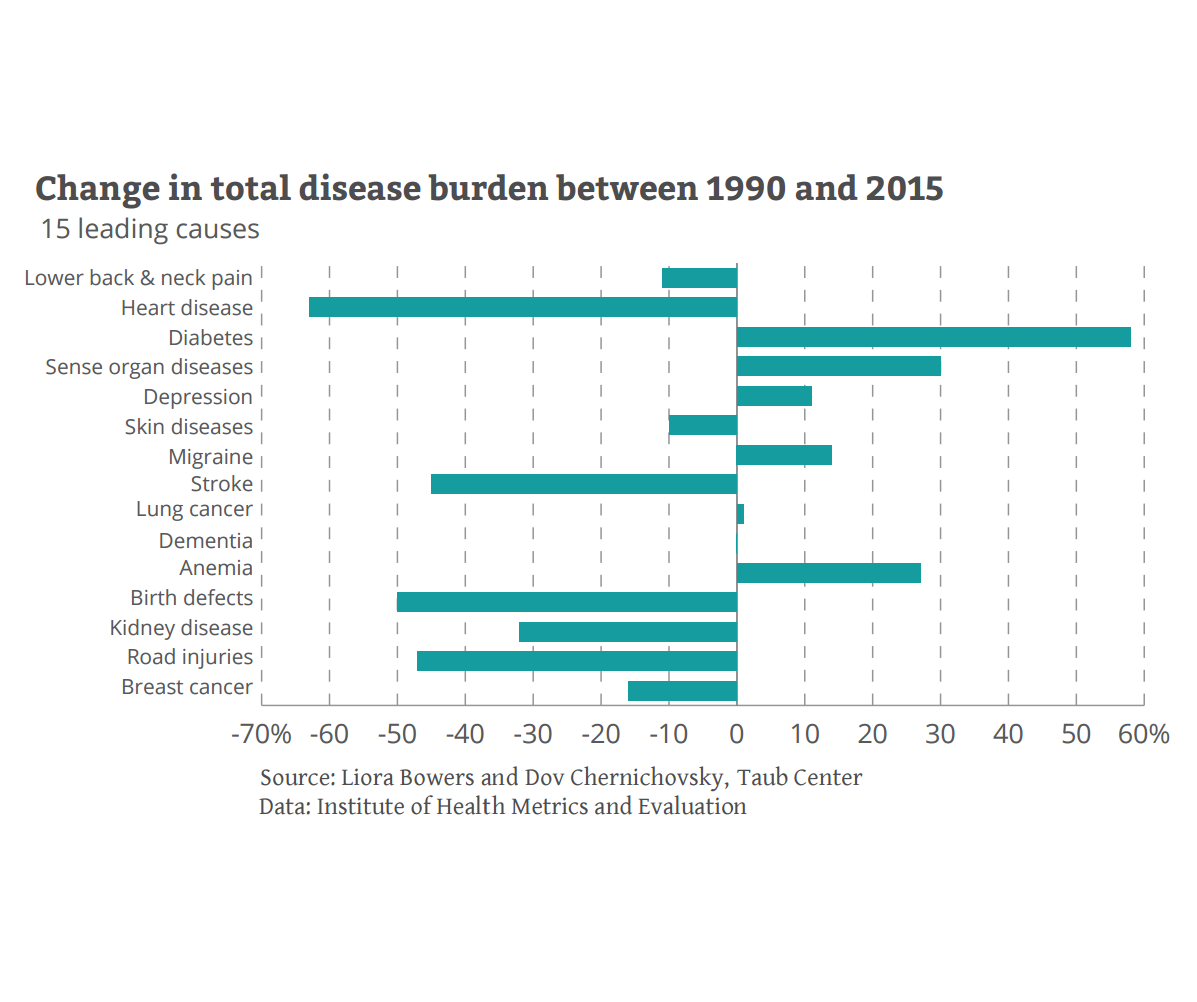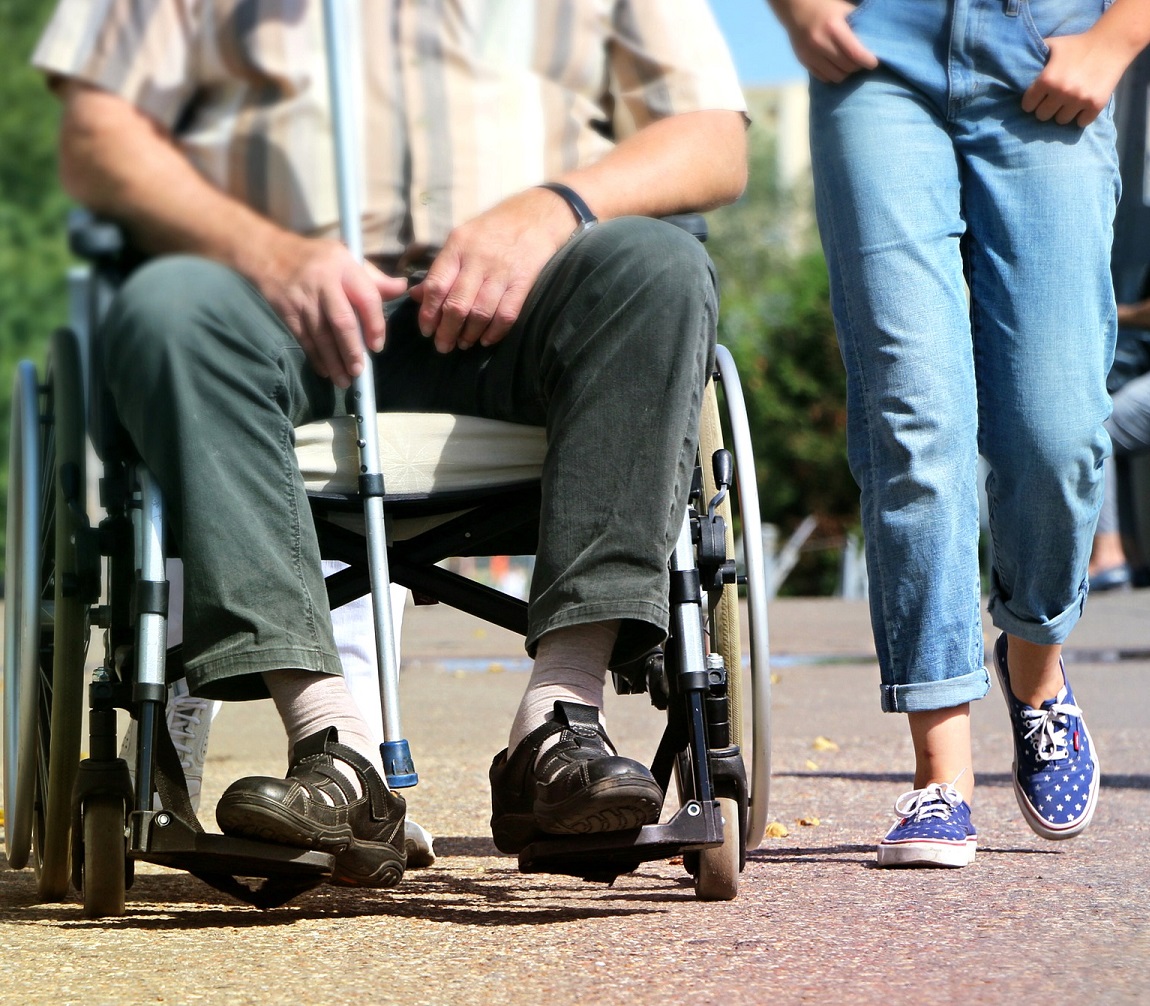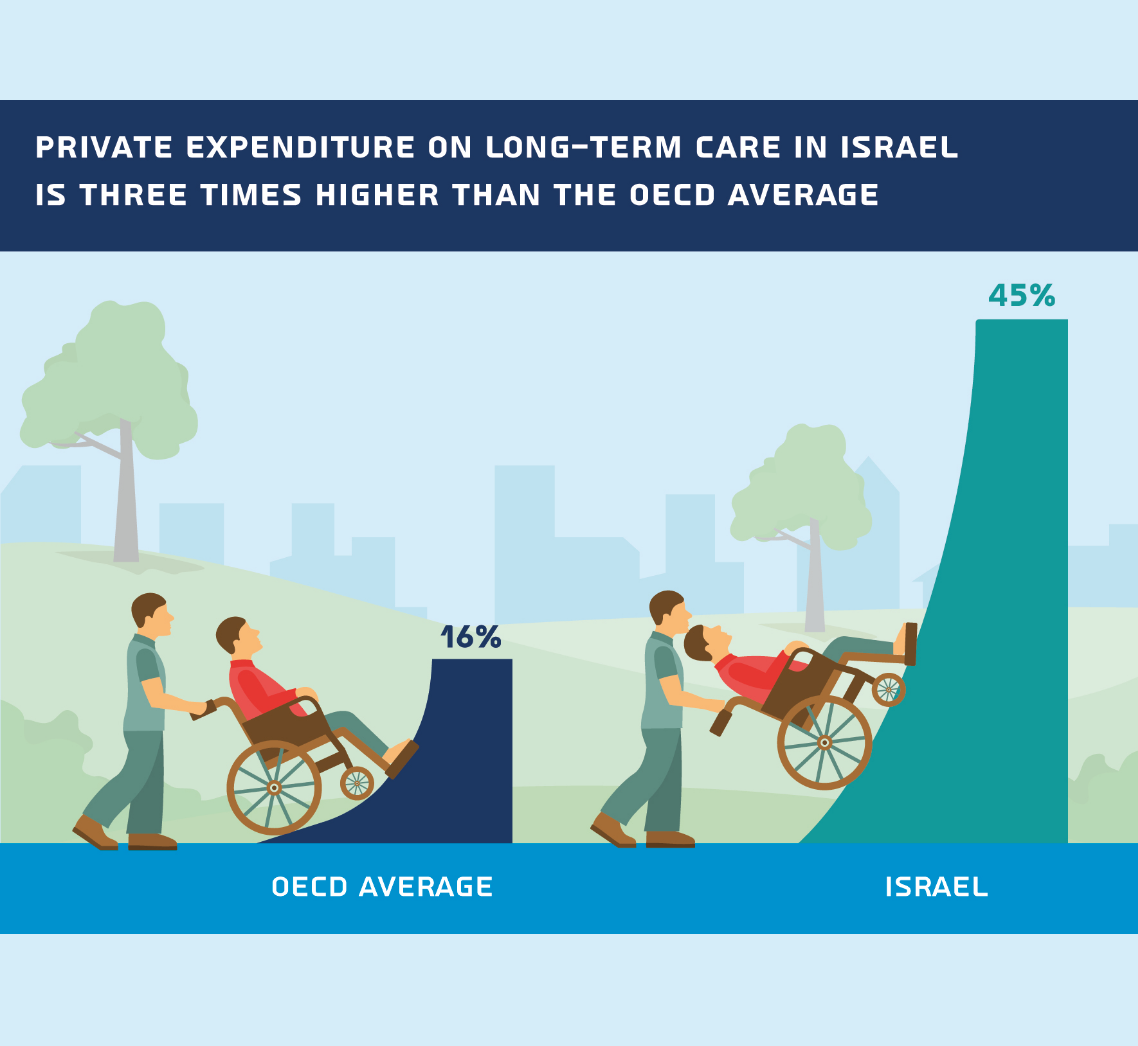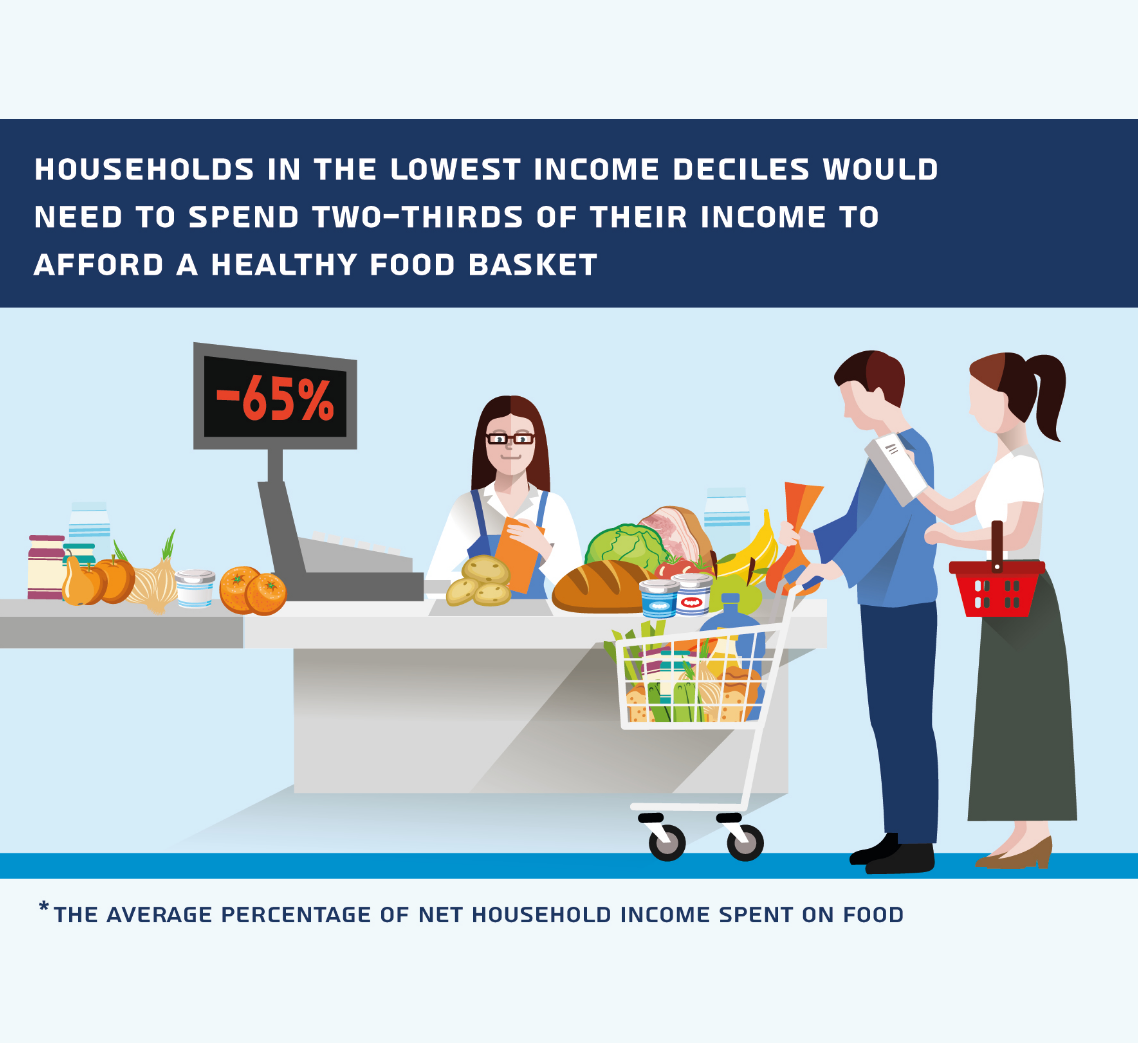
Israelis live relatively long and healthy lives. But a growing elderly population means growing medical needs and costs. Who does the financial burden of health care fall on and who can or can’t afford the medical coverage they need?
Here are 10 quick things you should know about health in Israel

1
Let’s start with living longer lives.
Not only is male life expectancy in Israel one of the highest in the world (80.2 years), it is also much higher than expected given Israel’s wealth, educational profile, and health and demographic characteristics. After looking into this further and analyzing over 130 countries, we encountered a surprising finding: that military service explains half of the longer male life expectancy.

2
So Israelis live longer, but how much of that time are they healthy?
Healthy life expectancy in Israel is among the highest in the world, but is growing slower than life expectancy. A baby born in 2015 in Israel can expect to live 80.2 years, but only 71.7 years are expected to be lived in good health. That’s about a decade on average of Israelis living in poor health over the course of their lives, which can be a burden on families as well as on the State.

3
The biggest culprit – the fastest growing health issue in Israel today – is diabetes.
While lower back & neck pain and heart disease have been decreasing (going to the left in this graph) in their contribution to the disease burden in Israel, the disease with the most notable opposite trend – that has grown most in its contribution to health problems in Israel over the past two and a half decades – is diabetes.

4
Why are we focusing so much on old age?
Israel’s population is expected to age substantially in the coming decades. The number of elderly (70+) is expected to double from about 610,000 today to about 1.24 million by 2035, growing more than other age-groups. This means the elderly will make up a greater share of the entire Israeli population than they do today. As a result, Israel’s disability levels – which are by nature higher among the elderly – are expected to grow even faster than the growth of the general population by 2035.

5
Israelis are keeping care close to home.
About 19% of care for patients aged 65 and older in Israel takes place in homes or communities (versus 9% on average in OECD countries with available data), rather than in institutions like nursing homes. This is generally viewed as a positive trend but, in Israel, it may reflect relatively limited access to institutional care. Much of the financial burden of home-care falls on families – whether by paying for a caregiver or missing work themselves to care for elderly family members. Some organizations provide support for the elderly to “age in place,” and expanding such programs could ease the burden on family members.

6
Who has to pick up the bill?
Limited public funding and a trend towards expensive home-care boils down to this: A greater financial burden falls on Israeli families to pay for long-term care out of pocket than in most of the other developed countries. Out of all of the money spent on long-term care in Israel, about 45% comes from private spending. This is nearly triple the private spending in the OECD, which stands at 16% on average. Israel hasn’t introduced any universal long-term care insurance, resulting in the fact that 22% of private spending on long-term care in Israel goes toward private insurance premiums.

7
More and more, public health insurance in Israel just isn’t enough.
Over a fairly short amount of time, the percentage of Israelis who purchase their health fund’s supplemental insurance for coverage beyond the universal package grew from 50% to 80%. Commercial insurance, however, is for the relatively well off, and less than half the population have this type of insurance.

8
What is the difference between what the rich and poor pay for their healthcare?
The amount that households spend on healthcare increases substantially with income – those with the highest incomes spend almost triple the amount spent by those with the lowest incomes. But, when you look at the percentage of income spent on healthcare, the picture is quite different. Those with the highest incomes spend only 4.8% of their incomes on healthcare, while those with the lowest incomes spend 9.5% of their incomes on medical care.

9
The time patients must wait for elective surgery isn’t the same across the country either.
Looking at the six distinct geographical districts in Israel, it’s clear that the large metropolitan areas have the shortest waiting times, while the peripheral areas have the longest waits. For example, the median wait for elective surgery in the South is twice that in Jerusalem. The longer wait is in keeping with other disparities in healthcare resources in the periphery – a topic which has sparked a lot of discussion among Israelis.

10
It’s too expensive for low-income families to eat healthy.
An average low-income family would need to spend 65% of its income on food in order to eat a healthy Mediterranean diet, which is rich in vegetables, fruits and whole grains. In actuality, they only spend about 42%, meaning that these families, while still spending a substantial portion of their income on food, are either cutting back on the quality or quantity of the foods they eat. On the other hand, the wealthiest Israelis need to spend only about 7% of their income to afford a healthy diet and, in practice, spend about 10% of their income on food.

We believe that good research leads to good policy and a better Israel.
You can learn more about health, economics, education, employment and social welfare in Israel at taubcenter.org.il.
Photo attribution:
Page 6: Photo via Visual hunt
Published: May 4, 2017
Latest Revision: Sep 29, 2017
Ourboox Unique Identifier: OB-303003
Copyright © 2017








